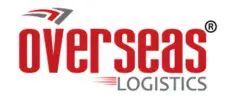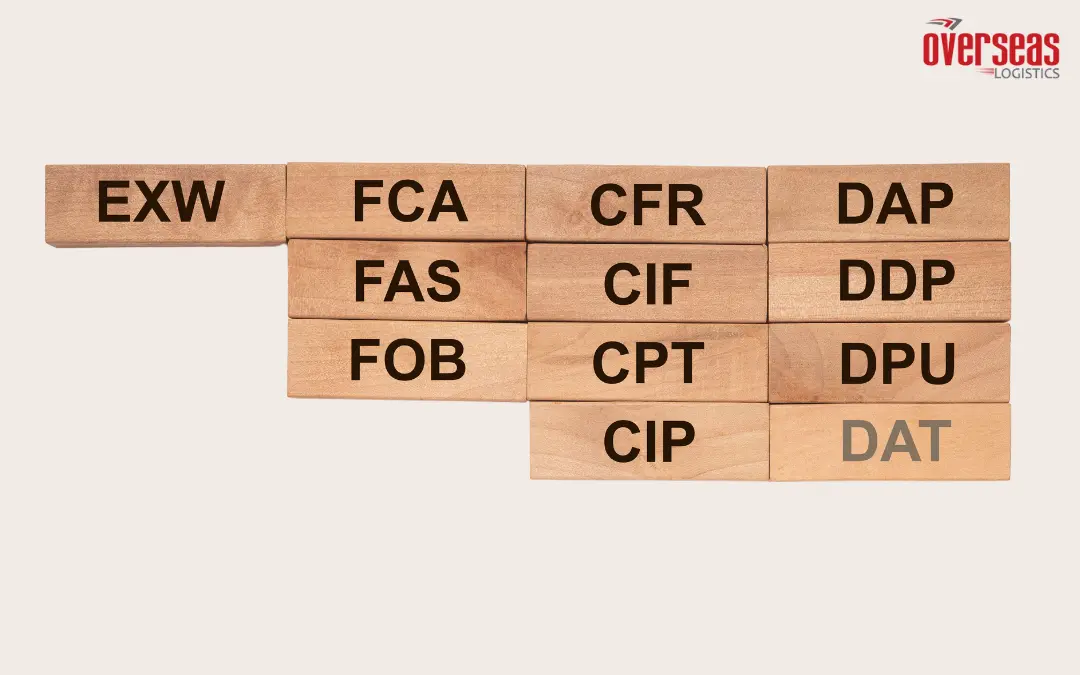In the dynamic realm of global commerce, mastering Incoterms is not just a choice but a necessity for businesses engaging in international couriers. These International Commercial Terms, abbreviated as Incoterms, are standardized three-letter codes crafted by the International Chamber of Commerce (ICC). They play a pivotal role in defining the roles, responsibilities, and risks of buyers and sellers in the intricate process of international couriers.
Understanding the Basics: What Are Incoterms?
Incoterms, at their core, are a set of standardized abbreviations designed to clarify the responsibilities of parties involved in international couriers. The importance of Incoterms lies in their ability to minimize misunderstandings and conflicts by clearly outlining the allocation of risks and costs.
Incoterms for Any Mode of Transport
EXW (Ex Works)
EXW, or Ex Works, stands as a testament to a seller’s commitment to making goods available at their premises. This term places the onus of subsequent costs and risks on the buyer, making it an ideal choice for those seeking control over logistics within the seller’s country or for domestic transactions.
FCA (Free Carrier)
FCA, or Free Carrier, provides unparalleled flexibility across all transport modes. Sellers deliver goods cleared for export to the buyer’s appointed carrier at a named place, with the buyer assuming responsibilities, including main carriage and insurance, from this juncture.
CPT (Carriage Paid To)
CPT, or Carriage Paid To, involves the seller paying for freight to transport goods to a named destination. The risk transfers to the buyer upon handover to the first carrier, making it suitable for couriers involving multiple modes of transport.
CIP (Carriage and Insurance Paid To)
CIP, or Carriage and Insurance Paid To, mandates the seller to deliver goods to a carrier of their choice, covering carriage and insurance to the named destination. Applicable across all transport modes, CIP ensures the seller procures insurance against the buyer’s risk of loss or damage during transport.
DAP (Delivered at Place)
Under DAP, or Delivered at Place, the seller is obliged to deliver goods to a named place, ready for unloading at the buyer’s disposal. Unlike DDP, the seller is not responsible for unloading, making it suitable for scenarios where buyers desire control over import formalities or face regulatory challenges.
DPU (Delivered at Place Unloaded)
Introduced in Incoterms 2020, DPU replaces DAT (Delivered at Terminal). Under DPU, the seller delivers goods to a named place and is responsible for unloading, making it ideal for scenarios where the seller can manage unloading at the destination, such as large-scale projects.
DDP (Delivered Duty Paid)
DDP implies that the seller delivers goods ready for unloading and bears all associated costs and risks in transporting the goods to the destination. This term represents a high level of obligation for the seller, requiring expertise in the import regulations and procedures of the buyer’s country.
Incoterms Specifically for Sea and Inland Waterway Transport
In the context of maritime and inland waterway transport, four distinct Incoterms come into play, addressing the unique aspects of shipping via these routes.
FAS (Free Alongside Ship)
FAS, or Free Alongside Ship, necessitates the seller to deliver goods alongside the ship at the named port of shipment. The buyer assumes responsibility for loading onto the ship and subsequent transport.
FOB (Free On Board)
In maritime shipping, FOB designates that the seller loads goods on a vessel chosen by the buyer, transferring risk upon loading. The buyer assumes all costs and risks from this point onward.
CFR (Cost and Freight)
Similar to CIF but excluding insurance, CFR is exclusive to sea and inland waterway transport. The seller pays costs and freight to the destination port, with the risk of transferring to the buyer at the ship’s rail, placing greater responsibility on the buyer.
CIF (Cost, Insurance, and Freight)
Common in sea freight, CIF entails the seller delivering goods, clearing them for export, and covering carriage and insurance costs to the named destination port. The buyer assumes risk upon loading onto the ship, covering additional transport costs and import duties.
Common Incoterms
Understanding the specifics of certain Incoterms is crucial for making informed decisions and mitigating risks in international couriers.
DDP – Delivered Duty Paid
DDP imposes a high level of obligation on the seller, signifying that the seller delivers goods ready for unloading and assumes all associated costs and risks in transporting the goods to the destination.
DPU – Delivered at Place Unloaded
Introduced in the latest Incoterms 2020, DPU replaces DAT. It is tailored for scenarios where the seller can manage unloading at the destination, especially in large-scale projects. Under DPU, the seller is responsible for delivering goods to a named place and unloading.
DAP – Delivered at Place
DAP mandates the seller to deliver goods to a named place, ready for unloading at the buyer’s disposal. Unlike DDP, the seller is not responsible for unloading, making it suitable for scenarios where buyers desire control over import formalities or face regulatory challenges.
CPT – Carriage Paid To
In CPT, the seller pays for freight to transport goods to a named destination, with the risk transferring to the buyer upon handover to the first carrier. This term is optimal for couriers involving multiple modes of transport.
CIP – Carriage and Insurance Paid
CIP necessitates the seller to deliver goods to a carrier chosen by them, covering carriage and insurance to the named destination. Applicable across all transport modes, CIP ensures the seller procures insurance against the buyer’s risk of loss or damage during transport.
CIF – Cost, Insurance, and Freight
A common term in sea freight, CIF involves the seller delivering goods, clearing them for export, and covering carriage and insurance costs to the named destination port. The buyer assumes risk upon loading onto the ship, encompassing additional transport costs and import duties.
CFR – Cost and Freight
Similar to CIF but excluding insurance, CFR is exclusive to sea and inland waterway transport. The seller pays costs and freight to the destination port, with the risk of transferring to the buyer at the ship’s rail, placing greater responsibility on the buyer.
FOB – Free On Board
In maritime shipping, FOB designates that the seller loads goods on a vessel chosen by the buyer, transferring risk upon loading. The buyer assumes all costs and risks from this point onward.
FAS – Free Alongside Ship
Specific to sea and inland waterway transport, FAS requires the seller to deliver goods alongside the ship at the named port of shipment. The buyer assumes responsibility for loading onto the ship and subsequent transport.
FCA – Free Carrier
Flexible across all transport modes, FCA dictates that the seller delivers goods cleared for export to the buyer’s appointed carrier at a named place. From this point onward, the buyer manages responsibilities, including main carriage and insurance.
EXW – Ex Works or Ex-Warehouse
In EXW, the seller makes goods available at their premises, with the buyer assuming all subsequent costs and risks. Buyers favor this term when seeking control over logistics in the seller’s country or for domestic transactions.
Advantages of Using Incoterms
Clarification of Responsibilities
Incoterms play a pivotal role in international couriers by distinctly outlining the roles and responsibilities of buyers and sellers. This clarity is crucial in minimizing misunderstandings and confusion, particularly in cross-border transactions where different interpretations of shipping terms can lead to conflicts.
Risk Management
Knowing exactly when the responsibility for the goods shifts is crucial for both parties to manage their risks effectively. By outlining the responsibilities and risks, Incoterms enable parties to make informed decisions, particularly concerning insurance and other risk mitigation strategies.
Cost Efficiency and Planning
Incoterms delineate who is responsible for various costs involved in transporting goods. This transparency allows businesses to plan and budget their expenses more effectively, ensuring there are no surprise costs.
Logistics and Operational Efficiency
Incoterms simplify and standardize the shipping process, making international couriers more efficient. This standardization is crucial in reducing errors and delays due to misunderstandings or miscommunications.
Legal and Compliance Benefits
Incoterms are legally recognized globally, providing a legal framework familiar to courts and governments worldwide. This recognition is essential in ensuring that contracts are enforceable and respected across borders.
Facilitation of International Courier
By making international transactions simpler and more secure, Incoterms facilitate global couriers, connecting markets and enabling the smooth flow of goods across borders. Incoterms establish a reliable foundation for couriers, especially between parties unfamiliar with each other.
Incoterms for eCommerce Businesses
Incoterms essentially dictate the division of responsibilities, costs, and risks between sellers and buyers in eCommerce transactions. They serve as a universal language, ensuring that all parties involved in an international transaction clearly understand their obligations.
When selecting an Incoterm for eCommerce shipping, businesses must consider various factors, including the type of product, shipping destination, and the level of control they wish to maintain over the shipping process.
The chosen Incoterm should align with the business’s logistical capabilities and financial strategies. For instance, DDP (Delivered Duty Paid) might be preferable for businesses wanting to offer a comprehensive service to their customers, covering all shipping and customs duties.
The selection of Incoterms also needs to reflect the business’s risk tolerance.
The selection of Incoterms in B2B (Business-to-Business) eCommerce often differs from that in B2C (Business-to-Consumer) due to the different nature of transactions. B2B transactions typically involve larger quantities and values, necessitating more comprehensive terms like CIF (Cost, Insurance, and Freight) or CIP (Carriage and Insurance Paid To). In B2C eCommerce, where individual consumers are often the end recipients, terms like DDP or DAP (Delivered at Place) might be more prevalent. These terms ensure that consumers are not burdened with additional responsibilities like customs clearance or additional shipping charges.
Conclusion
The use of Incoterms in eCommerce cannot be overstated; they are the language of global commerce, providing clarity and consistency in transactions that span borders and cultures. eCommerce entities, whether seasoned couriers or new entrants are encouraged to embed Incoterms into their international shipping strategies. By doing so, they can achieve more efficient, compliant, and cost-effective shipping solutions.
The right choice of Incoterm can significantly influence the success of a transaction. Likewise, the right choice of international courier services can significantly influence your export-import business – from ensuring timely deliveries to reducing shipping costs and satisfying legal requirements. Find the best international shipping company in India with the help of Overseas Logistics. Get expert international courier recommendations, faster customs clearance, and seamless freight forwarding right from a single platform.

